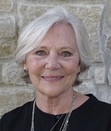Joy H. Selak's Blog: JoyWrites Blog
November 8, 2025
HOLIDAY DEAL ON CEE'SGEE'S GIFT
Are you looking for a gift for a senior, or a young teen, or one the two could share? The award winning novel CeeGee’s Gift is the heartwarming story of the friendship between a kind old man and a young girl with a gift of ‘Knowing’ what the future will bring. Together the two learn to use her gift to help others plan for the future, or perhaps change direction and change the future, transforming her small town of Southport on Texas’ Magdalena Island.
I have copies of CeeGee’s Gift in Paperback and Hardback and would be happy to personally sign and dedicate as you instruct. Order now on the Buy A Book Page on my JoyWrites website, and send me an email with any details on the dedication to joy@joywrites.com. Please Use HOLIDAY BOOK DEAL in the Subject Line.
CeeGee’s Gift was the winner of the national Pencraft Award for Literary Excellence, and Many Books for Best Fiction. The novel was also a winner of Book of the Month with Many Books and a Finalist for Best Fiction with American Book Fest.
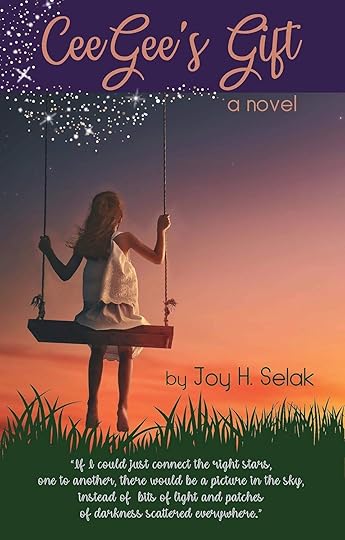
September 30, 2025
Interview on Invisible Illness with Carmen Chai of Everyday Health

I was honored to be interviewed for this article, hope you find it helpful.
September 15, 2025
Writer Beware
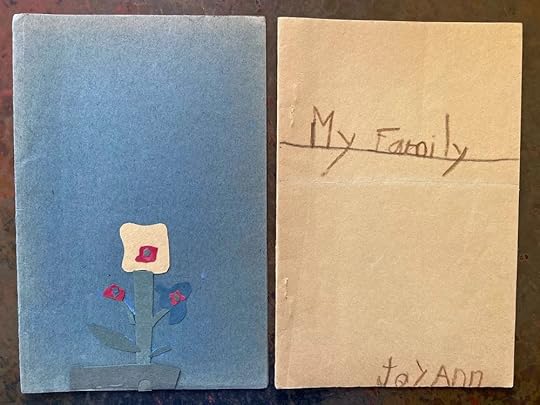
I have loved to write ever since I was able to write. When my mother passed away, I found in her desk files two ‘books’ I wrote for her, years before I even learned cursive. One has construction paper cutouts glued to the cover creating the image of a flower in red, blue, green and yellow. The content, a single page on lined paper with the title Mother reads:
Mother is the dearest of all the friends I know. She works for me. She plays with me. That’s why I love her so. Joy Ann
That sentiment remains true today. The second book is titled My Family and is three pages long, each one illustrated with drawings of family members, trees, clouds, bicycles, our house and our dog. The content reads:
This is my Mother. I like her. This is my father. I like him. This is my brother. He is getting bigger. His name is Bobby. This is my brother. His name is Billy. This is me. My name is Joy Ann. This is my dog. He is good.
One can see here a very young girl’s reach to become a published author, stretching the manuscript from one page to three, creating a unique cover design, adding illustrations and writing for a clearly defined audience. Since these initial works, I went on to become an English major, teach Freshman Composition, design a K-12 Language Arts Curriculum for three school districts, and the proud author and co-author of two books, and am seeking representation for a third, a memoir.
My experience with publishing has seen many changes since those early manuscripts. With my first adult book about living with chronic illness, my co-author and I were lucky to find a competent professional agent who steered us to the right publisher for both the first edition in 2005 and a second in 2012. The process was transparent and rewarding, our book remains in print, and You Don’t LOOK Sick! was recently named one of the best 11 books for living with chronic illness and pain by Upjourney. I still get notes and emails from readers thanking us for helping them manage their illness. I self-published my second book, a novel, and while I hired a competent editor and the novel won many awards, CeeGee’s Gift did not reach the audience I hoped it would. I would not go that route again unless I was writing for a well-defined audience, one I had direct access to, on a very specific topic, for example a business sector or an educational theme.
Over time, the process of getting a book into a publishing house has become long and grueling with query letters sitting in slush piles until some rookie agent gets to them—or never does. Self-publishing diminishes the need for the valuable professional collaboration between agents, editors and publishers. Any author with any project can pay up front to have their work edited, formatted and published. But in spite of this investment the book may not be widely distributed, get into bookstores, receive meaningful reviews or achieve sales that exceed those upfront costs. Most of all, these books may not be good writing.
Today, self-publishing has gone even further away from tradition, and the model is truly jarring. It seems as if the authors are now the market, not the books nor the readers. Since I began to follow authors’ groups on Facebook, I have been contacted by publishers, editors, designers, reviewers, marketers, and book club promoters, all raving about what a great a writer I am and how much they want to represent me. The model is not to share in royalties from sales after publication, but for me to pay them up front for their services. The determination and relentlessness of these marketers have been rattling, and verifying their legitimacy has occupied time I could have spent writing, researching and improving my query letter, synopsis and comparable memoirs so I can find an actual agent.
On a positive note, I still receive notes from readers and reviews for my published work. An Amazon review of CeeGee’s Gift was posted by a mother who planned to share the book with her daughters but found out all three had all already read it. I was recently contacted by a college professor who is using our 13-year-old book, You Don’t LOOK Sick, as a textbook in her classes with disabled students. And today I received a royalty check from the agency that represented that first book. Sadly that agent has retired. I would love her advice today and the trust we shared. But at my heart, I am a writer, as I have always been. And being a writer has always been both challenging and satisfying. I will do the work and find a home, a safe home, for my memoir and the book after that. And hopefully the one after that.
Most of all, I will keep writing.
August 7, 2025
Remembering Hiroshima
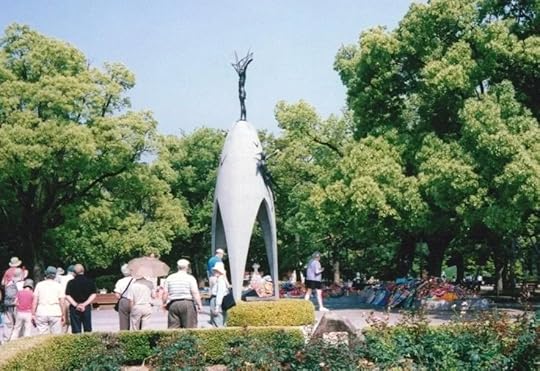
On August 6, 1945 the United States dropped the first atomic bombs on Hiroshima and Nagasaki, Japan. There are differing opinions about our country’s culpability in exerting such destruction on so many people. As a child I told my father I thought what we did was wrong. He said, “This was the only way to end the war. Otherwise the Japanese would never give up.”
The site of the bombing of Hiroshima is now Peace Memorial Park, located near the ruins of the one building left standing. There is a museum in that old building now, filled with artifacts from the time. Whenever any country or leader threatens to bomb again, the mayor of Hiroshima sends a hand-written note imploring the leaders to honor the decades of restraint. These notes are cast into metal tiles and each one becomes part of a model of that old, domed building.
Children from around the world still send bundles of origami cranes in honor of Sadako, a young girl injured in the bombing. Sadako believed that if she could fold 1000 origami cranes, she would be granted her wish to live. A tall, elegant monument in the park has a figure of Sadako standing atop it, arms outstretched. Underneath is a stone chest holding the names of over 220,000 people who, in addition to Sadako, died during or after the blast. The thousands who visit the park every year are met by young Japanese students who, like the mayor, hand out hand written cards pleading for world peace.
There has never been another A Bomb, so in this way it is true the Japanese don’t give up. In this sacred place, these good people will not give up their quest for peace. Perhaps it is time for those of us around the world to begin making Origami Cranes.
July 12, 2025
Summer Camp
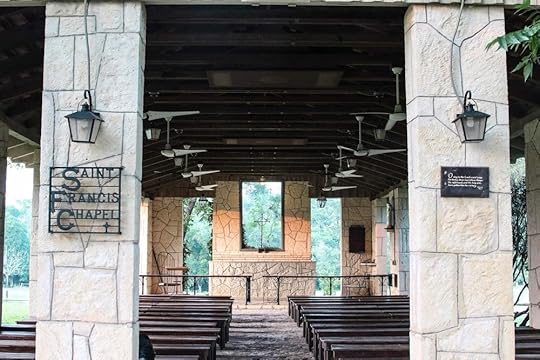
Like many Texas children, summer camp in the Hill Country was an annual two-week getaway for me. At 7 years old, I went to Camp La Jita, a Girl Scout camp near Utopia, Texas. I loved sitting around the campfire in the dark, roasting marshmallows, learning the names of all the constellations, so bright and visible in the dark country sky. At Camp La Jita we swam in the Sabinal River, where you could see dinosaur tracks embedded in the ancient limestone river bottom. Our tent cabin, with a wood floor and canvas roof, was big enough to sleep 4, and when we climbed into our bunks at bedtime the tent tops would be covered with Daddy Long Legs spiders, settling in for their own restful night.
There were often snakes in the river and we were taught a chant of which ones to avoid—'Red and Yella Kill a Fella; Red and Black Venom Lack’. The ones in the water were usually Water Moccasins, big and dark brown, not venomous. Along the trail back to our cabin we sometimes saw Coral snakes, with bright bands of red, yellow and black, so we knew to keep away from them. Even with the snakes and the spiders, my memories of those summers are idyllic and cherished. While there was danger, the fear of flooding was not one of them for us. It was all the fun kids, the cool counselors, the campfires and rivers that made each day special. My nickname was JoJo.
When I was 13, the counselors at Camp La Jita told me that if I came back the next year, they would give me a hatchet, and I would have to chop some wood to build my own tent structure. This news prompted me to switch to Camp Capers, a coed Episcopal Church Camp, also in the hill country but along the Guadalupe River, rather than the Sabinal. The camp’s Saint Francis Chapel was a beautiful open-air pavilion where we gathered to worship every day. I loved the Mexican priest who led our services, his melodic accent making the liturgy soar even higher. There was some truth to the name Camp Capers, as we did caper around a bit. It was during those summers I got my first boyfriend, and my first kiss.
Today, over half a century later, I cannot imagine that those cherished memories of mine would instead be the horror of a devastating flood, a massive loss of life, hundreds of children missing. The more I remember those magical years of summer camp in Texas, the more my heart breaks for those who are experiencing this horrific and ongoing tragedy. Thankfully Camp La Jita was not in the flood zone and Camp Capers, while in the zone, had no campers on site when the floods occurred. A small silver lining. I wish there was a way to turn that silver lining into a safe, protective shield for all of these families. But at least I can pray for them, as I learned to do next to the river, in the St. Francis Chapel.*
*If you are looking for other ways to help, here are a few organizations where your donations could make a meaningful difference.
Verified Donation Sites:
Kerr County Flood Relief - Monetary Donations
UFCU - Non-Monetary Donations
American Red Cross - Monetary Donations
TENGA Texas Flood Relief Fund - Monetary Donations
HEB - At the register or curbside and online order donations
June 19, 2025
California Girl

The recent death of the lead singer of the Beach Boys, Brian Wilson, brought back a flood of memories for me. When I was 18 and just finishing my senior year of high school in San Antonio, Texas, my father announced he got a new job, and we were moving to California. As a lifelong Texan, this was not good news for me, nor was it our first move. Only a year earlier, another job change resulted in the sale of our family home and a relocation to a nondescript apartment nearby. While my friends were waiting for their college admission letters, I was packing, unpacking and packing again. Once in California, we rented an apartment on the western edge of the San Fernando Valley. My father told me I was expected to add income to the household, so I applied for every job available at the nearby shopping mall and was hired by Montgomery Ward into their accounting department. Math had been my poorest and least favorite subject in high school, but I was relieved to get a job.
At first, I felt unmoored and directionless, but driving down the Pacific Coast Highway while listening to the Beach Boys on the radio began to lift the gloom. ‘I don’t have to be a Texas girl,’ I thought, ‘I can ditch the accent and become a California Girl.’ But just as I started dating a handsome young man who was introducing me to his version of sunny California, while taking a few arts classes at the community college, and had found I actually liked the purpose and predictability of accounting, Dad got another new job, this time in Arizona—a land with no beaches, just dirt and cactus and snakes. And the move came with the burden of waiting another year before I was eligible for affordable in-state tuition at the local college, Arizona State University. I spent that gap year as the receptionist for my dad’s boss, entered ASU majoring in education, not arts, and soon fell in love with learning. I stayed at ASU for 14 years, earning 4 degrees.
I learned a lot from this chaotic time. As a student and teacher at ASU, I became aware that community college is a good place to begin higher education; it is more affordable and often the teachers are more experienced. Taking a gap year before attending university can offer time to find direction and the determination to complete a degree. Having to earn money to support yourself as you grow can also deepen determination to focus, succeed, and get a good job in a well-paying career. And I gained valuable empathy as I realized I was not alone in my struggles, that many live their whole lives in chaos. For me, it was only brief.
Life is not a straight line, stuff happens, so learning to ride the waves can be valuable. My memories of my time in California remain special, the highways by the sea, the beaches, the canyon crossovers, the food, the weather. When I was 18, I was driving down the new 101 freeway on my way to Malibu, listening to the Beach Boys singing ‘California Girl’ on the radio. When I was 30, I chose to move back to California, met the love of my life and am living happily ever after.
Living a broader life in wider spaces is not misery, rather it is an expansive gift.
May 27, 2025
The Arts Are Everything
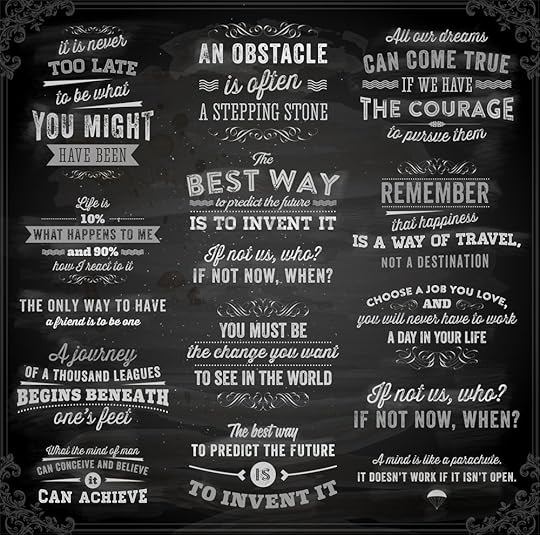
I was a lucky kid. I grew up in a world saturated with the arts. When I was six years old, I joined my parents as a season subscriber to the San Antonio Symphony. I began classical ballet lessons at five, and at twelve I was accepted into the San Antonio Civic Ballet Company. I was in the corps de ballet for the Grand Opera Festival that toured through the city every year. In high school, instead of taking electives that could get me into a good college, I took all the arts classes that were offered until there weren’t any left. Finally my teacher said, “Just go to the studio and make stuff.” Which I willingly did.
I was admitted to college, on academic probation, and soon found I liked the academic environment. I began to see the art in learning, in reading and in writing, and in the artistry of many professors. Over 14 years of study I earned four degrees, including two Masters’ and a Ph.D. in Education and Literature. I became a teacher, and later a curriculum specialist, and then moved beyond the academic world to become a stockbroker. During all this time I sustained my passion for the arts, because I knew my launch pad, and my progress, was rooted in the arts.
Over the years I took pottery and sculpture classes and learned to throw on a wheel and make bronze castings. I learned to solder and set gemstones and make jewelry. I took voice lessons and learned I was a soprano. I spent decades deeply engaged with theaters as an actor, choreographer, director, playwright and leader. I was not a master at any of these efforts, but I did my best and persisted and grew.
This long journey embedded in me a conviction that participation in the arts offers great value, whether it is visual or literary or performance. There is creativity, of course, but also collaboration and discipline and structure and organization. Art students learn to focus and keep working until they finish what they started, even if it’s hard. They learn to lead and to be part of a team, and from that learn both humility and respect. Not the least, they gain wisdom that they are unique and special—and so is everyone else.
So I say to parents, if you want to give your children a great gift, as my parents gave to me, encourage them to engage in the arts. And if you want this great American legacy to continue, support the arts in your communities and vote for the politicians who support the arts in our country. Because the arts are everything.
May 10, 2025
Be a Good Patient

There are a lot of barriers to accessing high quality health care in America, and I believe we should follow the model of other countries that are delivering better than we are. But here I will share how I’ve accessed the best care I can find by trying to become the most professional patient I can be. My experience with the health care system is deep and long. I’ve lived with 3 chronic, rare and poorly understood illnesses. One required brain surgery to begin recovery. I was sick enough that I had to leave a successful career and go on long term disability. And it took a full 7 years to get only the first diagnosis to begin this complicated journey.
Here are some tips I will share about what this journey taught me. The things that worked.
As you look for doctors that have the expertise you need, in addition to asking current doctors or friends for referrals, try asking nurses. They are the insiders.
Create a one-page summary of your current symptoms, medications and medical history and take it to every meeting. At the bottom add any notes relevant to this particular meeting. Nurses love it, doctors appreciate it, and it cuts down the time needed to record this data.
Be concise about why you are there, don’t get into some long story telling, and certainly not complaining. The doctor has a small slot of time for you, make every minute count.
If you are seeing a lot of doctors to address your condition, consider sending all of them an annual report summarizing the treatment you have received, for what condition, and the outcomes
If you have met with a doctor several times and feel you are not being heard, or that this physician doesn’t have the expertise you need, fire the doctor and find a better one.
I have found over years that we place ourselves in a subservient position to health care providers, when in reality we hire them, and they work for us, and we pay them for their good work. You may have restrictions on your choices based on insurance, your financial situation or corporate policies, but the fact remains that if you are going to get the care you need, you have to actively seek it, work as a team with your physicians, and do everything you can to get the best they have to offer.
April 8, 2025
Democracy and Differentness

When I was growing up in mid-century America, your political party was like the church you went to. Our family was Episcopal, my mother had no interest in politics whatsoever, and my dad was a Republican. So when I was old enough, I registered Republican. I didn’t give it much thought. Then I grew up, met my forever husband in the mid-1980’s, and as we were watching the Republican and Democratic party conventions on television one night, he pointed at the right side of the split screen and asked me, “Are these your people?” To me, the crowd looked mostly male, mostly white, and mostly old.
Then he pointed at the left side, “Or are these your people?” I looked again at the screen and saw people of multiple ages, genders, races—it was all of America in a room, energized and engaged. How had I not noticed before that these were my people? For the next election, I registered Democrat.
I have seen the messaging and demographics of party affiliation move like a pendulum, back and forth over the years. And I have remained curious about the reasons why we affiliate the way we do—liberal, conservative, moderate, independent, Democrat, Republican, Libertarian—however we label it. Historically, there has been a group where many of us felt we fit in, and to be part of this group has always been our choice. That freedom of choice is the heart of democracy. But now, that seems to have blown up and instead we have biased news broadcasting, the demonizing of the other, and a corporate takeover of our political identities. Gerrymandering seems to be more popular than free and fair elections. Donald Trump is not my father’s Republican, and my dad would not be proud of America and its politics today. Even though my father was a white, male American, we are not and never have been a white, male nation.
Still, I have hope. At 77 years old, I have witnessed the many ways we have botched democracy. And I’ve seen it survive. But our generation is aging out, and now I see the next generation getting ready to take the reins. While they may have already adopted a party bias, research shows they are more fair-minded, more diverse, more forward looking and more hopeful than my generation has become. They have been through toxic discourse, cancel culture and polarizing partisanship and want to move beyond it. Most important, they are more tolerant of differentness, which to me is the soul of America. Freedom of choice is the heart, and differentness is the soul.
It’s not all pretty, our history. We have stolen land, imported slaves and demonized the Native and Mexican Americans who were here long before the white people. We’ve witnessed the holding of power become more important than serving the people. If there was any tradition and order left, Covid blew it up. Now, we need change, and it is up to the younger Americans to bring it. I have hope they will, and I have hope I will live to see it happen.
August 1, 2024
What's the Story
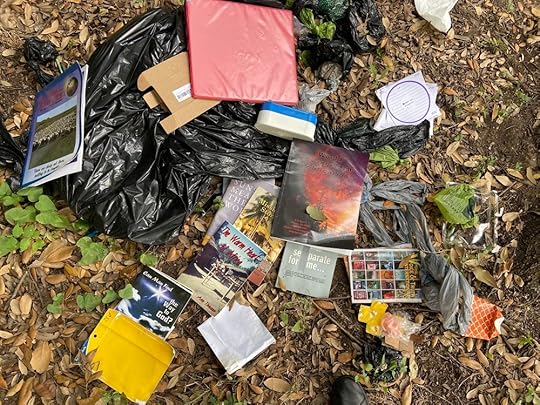
Recently, on my morning walk in the woods, I approached a trash can on the side of the trail. Beside it was an empty garbage bag with books, notebooks and magazines scattered all around it. I stopped to take a closer look and saw that all the titles referred to God, the globe and missionary work, like The Way to God, World Evangelism, The Warm Heart of Africa, Mission Stories, The Voice of Truth International.
As I stared at the scene, my instincts as a storyteller instantly went into high gear and I began to conjure what might be the story behind this mess. Maybe…
· A young man, planning to become an Evangelical missionary lost his faith. There was a scandal in his church that shattered him.
· A mother did not share the beliefs of her son and in a moment of rage threw out all the resources he had collected.
· A spouse could not convince her partner to join her faith and finally gave up. She would rather save her marriage than go on a mission.
· A young woman, planning a mission to Africa, lost the chance and threw out her books, then changed her mind and came back to get them, then changed her mind again.
The options are endless, and the scene fascinating. When I went back today, all had been cleaned up. Who cleaned up the mess? Was this part of the story? Is there more to the story? Or was it just park maintenance? I wonder…

